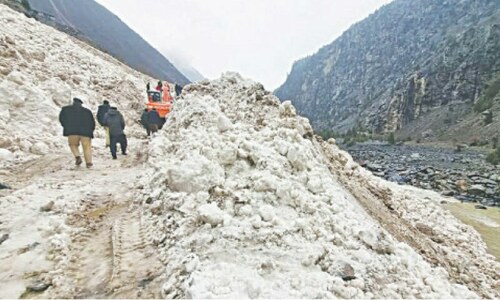THE changes in the provincial agriculture income tax laws aimed at aligning their rates with the federal corporate and personal tax regime was the easier part. The harder part is the effective collection of the tax. This is the part that the visiting IMF mission, which is scrutinising the progress on the benchmark targets of its funding programme, has been discussing with the centre and provinces. The collection of agriculture income tax under the new legislations is scheduled to start from July. But none of the provincial governments appear to have the capacity or apparatus needed to effectively levy the new rates. Perhaps the issue is politically too explosive for them, especially Punjab and Sindh, that together contribute more than 90pc of the country’s farm output, to implement the tax anytime soon. This is despite the fact that effective taxation of agriculture income is a core condition of the IMF bailout and part of the overall tax system reforms. “…[T]he provinces will take steps to increase their own tax collection efforts … [on] agriculture income tax”, says the loan agreement.
How important farm tax collection is for the IMF can be gauged from the fact that the Fund’s review mission has spent nearly two days engaging individually with the provinces and holding a joint technical workshop to explore the way forward for an effective and uniform collection of this levy. Seemingly, all the provinces are in the same boat as far as their preparedness for agriculture income tax collection is concerned. This is not surprising given the fact that none of the provinces have ever prepared themselves for this task because it involves strong resistance from the growers’ lobby in the assemblies. Neither PML-N nor the PPP would risk losing their support by enforcing the law in the near future. Moreover, the effective enforcement of the tax requires capacity building of revenue officials to assess farm incomes that vary from region to region and crop to crop, digitisation of the land record, etc. Its collection will also be a challenge because a large portion of the agriculture market in the country functions outside the documented economy, and transactions are conducted in cash. While it is important for the IMF to continue to insist on early enforcement, it must also help develop a comprehensive framework for implementation.
Published in Dawn, March 14th, 2025












































